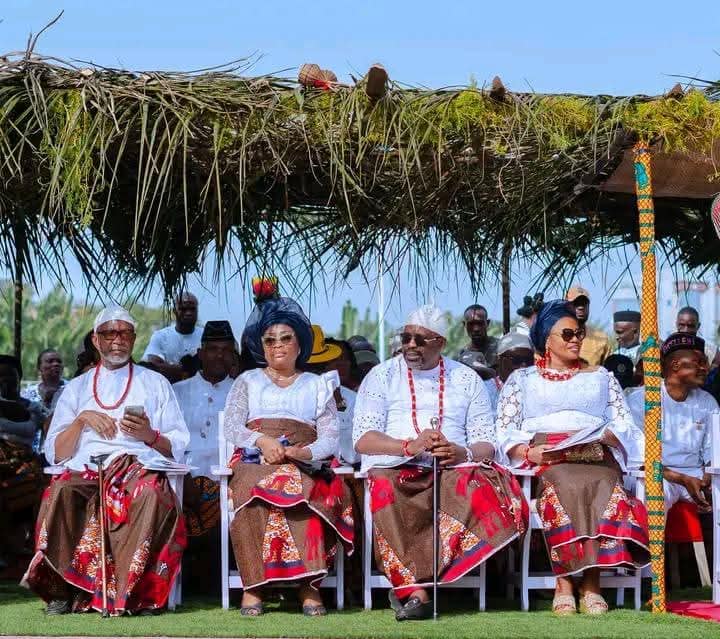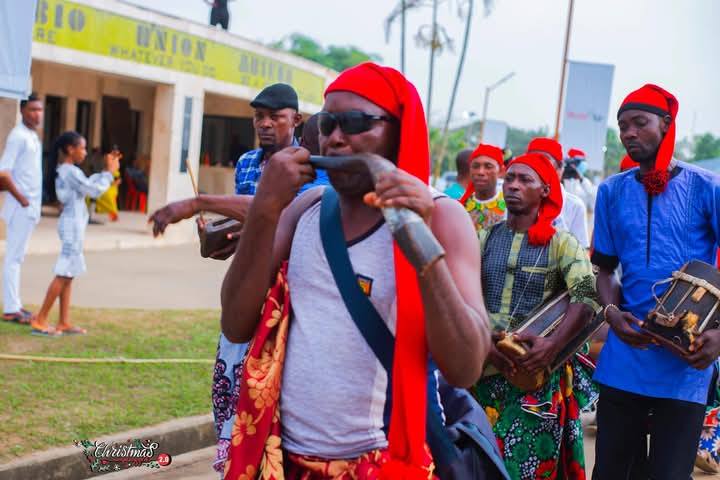About Us
OUR STORY
A few years ago in Atlanta, Georgia in the United States a few of us in a room decided that those of us who left home to this new land should work more closely together. We questioned the wisdom and benefits of abandoning the Ikot Ekpene Club to join the Ibibio State Union in 1928. We critically examined the gains that the Annangs made within that organization. This led us to where we are today and everyone agreed that in our generation we needed a new path. We decided to form what is called a home town association in the United States. The idea was sold to other individuals in other cities in the United States and so it was, that we gathered three months later in Washington DC, the US Capital, in the summer of 1990 and formed an Annang organization. We did decide to write Annang History and Annang language text as the first start in the absence of our written history, but those efforts went by the wayside. Ten years later Prof Ette worried about the new language policy in Akwa Ibom State that abandoned decades of language policy in order to impose Ibibio on everyone in the state, assembled a few individuals together and Annang Heritage was born. Today, through the efforts of a few compatriots, and without spending money and paying anyone, Annang Heritage has accomplished the history and language goals beyond our imagination. Acculturative Stress and Change in Nigeria, a well researched textbook explores the Annang history brilliantly. Ngwed Iko Annang books 1 – 4 seeks to teach the annang language in our schools. The Annang Hymnbook with more than 600 hymns is available for use. The Annang Bible is on the editing floor and the Annang-English dictionary is now an established text with its rightful place on every book shelf. We can accomplish anything if we set our minds to it, and this has been our philosophy. In our time, we cannot live on the land of our birth as a conquered people. We have vowed to use our education and our positions to ensure that Annang survives. Every year, many languages die, but God willing, Annang will not die so long as we are alive.
WHO WE ARE
What You Need to know About Annang Heritage

A few years ago in Atlanta, Georgia in the United States a few of us in a room decided that those of us who left home to this new land should work more closely together. We questioned the wisdom and benefits of abandoning the Ikot Ekpene Club to join the Ibibio State Unionin 1928. We critically examined the gains that the annangs made within that organization. This led us to where we are today and everyone agreed that in our generation we needed a new path. We decided to form what is called a home town association in the United States.
The idea was sold to other individuals in other cities in the United States and so it was, that we gathered three months later in Washington DC, the US Capital, in the summer of 1990 and formed an Annang organization.We did decide to write Annang History and Annang language text as the first start in the absence of our non written history, but those efforts went by the wayside. Ten years later Prof Ette worried about the new language policy in Akwa Ibom State that abandoned decades of language policy in order to impose Ibibio on everyone in the states, assembled a few individuals together and Annang heritage was born.
Today, through the efforts of a few compatriots, and without spending money and paying anyone, Annang Heritage has accomplished the history and language goals beyond our imagination. Acculturative Stress and Change in Nigeria, a well researched textbook explores the Annang history brilliantly. Ngwed Iko Annang books 1 – 4 seeks to teach the annang language in our schools. The Annang Hymnbook with more than 600 hymns is available for use. The Annang Bible is on the editing floor and the Annang-English dictionary is now an established text with its rightful place on every book shelf.. We can accomplish anything if we set our minds to it, and this has been our philosophy. In our time, we cannot live on the land of our birth as a conquered people. We have vowed to use our education and our positions to ensure that Annang survives. Every year, many languages die, but God willing, Annang will not die so long as we are alive.
What We Are Known For

Tourism
Discover the breathtaking landscapes and historical landmarks of Annang land. Key attractions include: Ikot Ekpene: Known as the “Raffia City” for its intricate raffia crafts. Annang Heritage Museum: Preserving artifacts, traditional tools, and historical documents. Sacred Forests: Mystical groves with deep spiritual significance. Visitors are welcome to experience the warmth and vibrancy of Annang hospitality.

Cuisine
Annang cuisine is a delightful reflection of their rich culture. Staple dishes include: Edikan Ikong: A nutrient-rich vegetable soup. Ekpang Nkukwo: A delicacy made from grated cocoyam and leafy vegetables. Ukodo: Spicy yam and goat meat pepper soup. Meals are often shared in communal settings, symbolizing unity and togetherness.

Traditions
The Annang people maintain deep-rooted traditions that guide their way of life. Notable traditions include: Marriage Rites: A sequence of ceremonies that unite families and honor both bride and groom. Farming Practices: Agricultural techniques passed down through generations to sustain livelihoods. Initiation Ceremonies: Symbolizing the transition into adulthood and societal responsibilities.